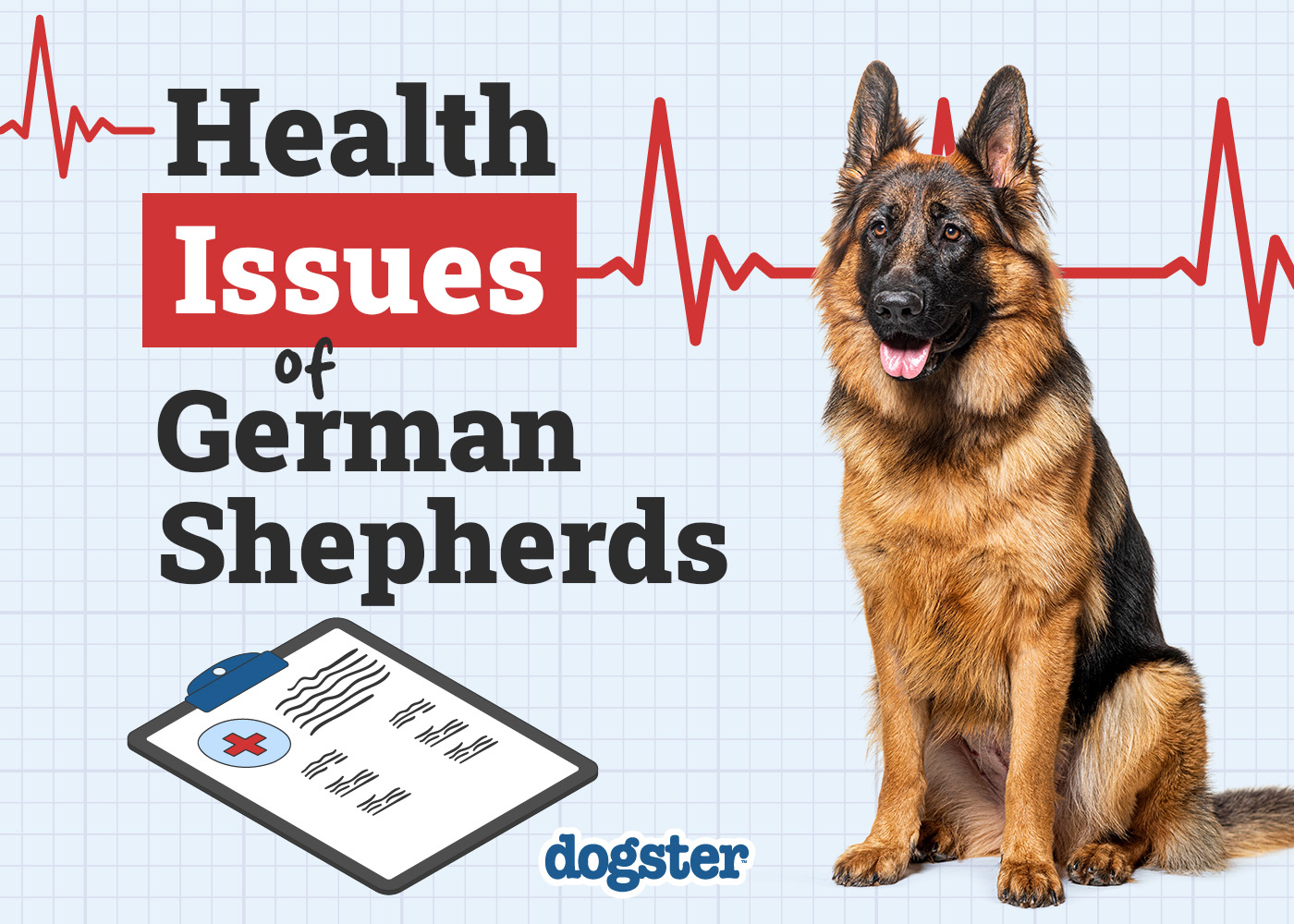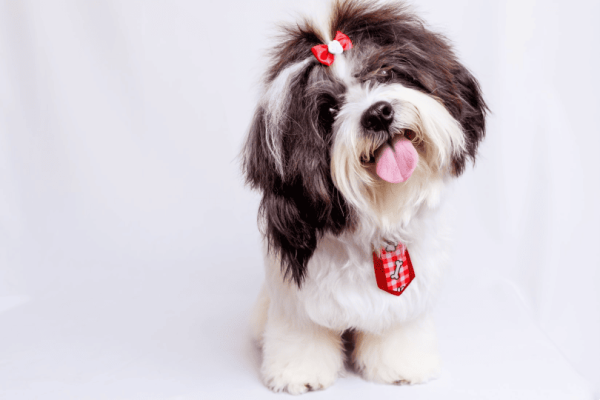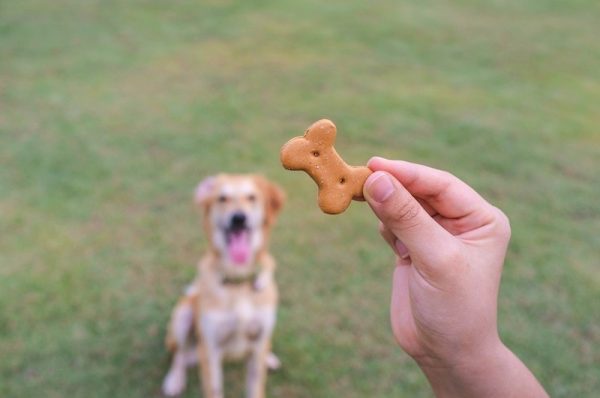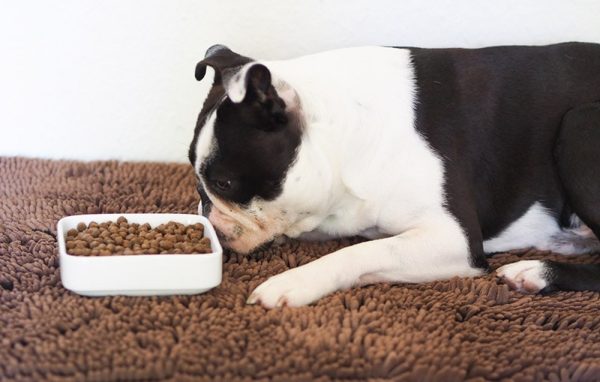In this article
As an energetic and lively breed, German Shorthaired Pointers are prone to a few health problems. Pet owners should be aware of health issues that might affect their pets so they can recognize the signs early.
In this article, we’ll explore the most common health problems in German Shorthaired Pointers and what you can do to keep your pup healthy and happy.

The 5 Health Problems in German Shorthaired Pointers
1. Hip Dysplasia
| Type | Genetic |
| Treatment | Diet, medication, therapy |
| Prevention | Exercise and diet |
Hip dysplasia is a very common health problem in German Shorthaired Pointers (GSPs). In this condition, the dog’s hip joint doesn’t fit into the socket like it’s supposed to, causing pain and lameness. GSPs are particularly susceptible to this condition due to their athletic build and heavy muscling.
Your veterinarian may recommend weight management, exercise modification, and pain relief medication to treat hip dysplasia. In severe cases, surgery may be necessary. Prevention is the best medicine when it comes to hip dysplasia. Be sure to purchase your German Shorthaired Pointer from a reputable breeder who tests their dogs for this condition.
Moreover, you should feed your GSP a nutritious diet and keep them at a healthy weight to minimize the risk of developing hip dysplasia.
2. Pannus
| Type | Hereditary |
| Treatment | Medication |
| Prevention | Adopt a healthy dog |
Pannus is an eye condition that causes the tissue around the eyeball to become inflamed. German Shorthaired Pointers are particularly susceptible to this condition, which can eventually lead to blindness if untreated.
If your GSP has red, inflamed eyes, it’s essential to take them to the vet for an exam. The good news is that pannus is treatable with the proper medication. Your vet will likely prescribe an eye drop or ointment to clear up the inflammation. Additional treatments can include sunglasses to protect your dog’s eyes from UV light, which can worsen the condition.
3. OCD (Osteochondrosis Dissecans)
| Type | Genetic |
| Treatment | Medication, surgery |
| Prevention | N/A |
Osteochondrosis Dissecans affects the cartilage in the joints, and it can cause pain and lameness in affected dogs. German Shorthaired Pointers are particularly susceptible to this condition. OCD typically develops in German Shorthaired Pointers when they are between 6 and 9 months old. The condition is thought to be caused by a combination of genetic, dietary, and hormonal factors.
Affected dogs can be treated with rest, medication, passive exercises, or surgery. If you notice your GSP chewing or licking their joints, or if they seem to be in pain, contact your vet immediately for diagnostics and a treatment plan.
Unfortunately, there isn’t much you can do to prevent OCD in German Shorthaired Pointers. The best thing you can do is to have your dog checked by a vet regularly and ensure their diet does not have excessive calcium.
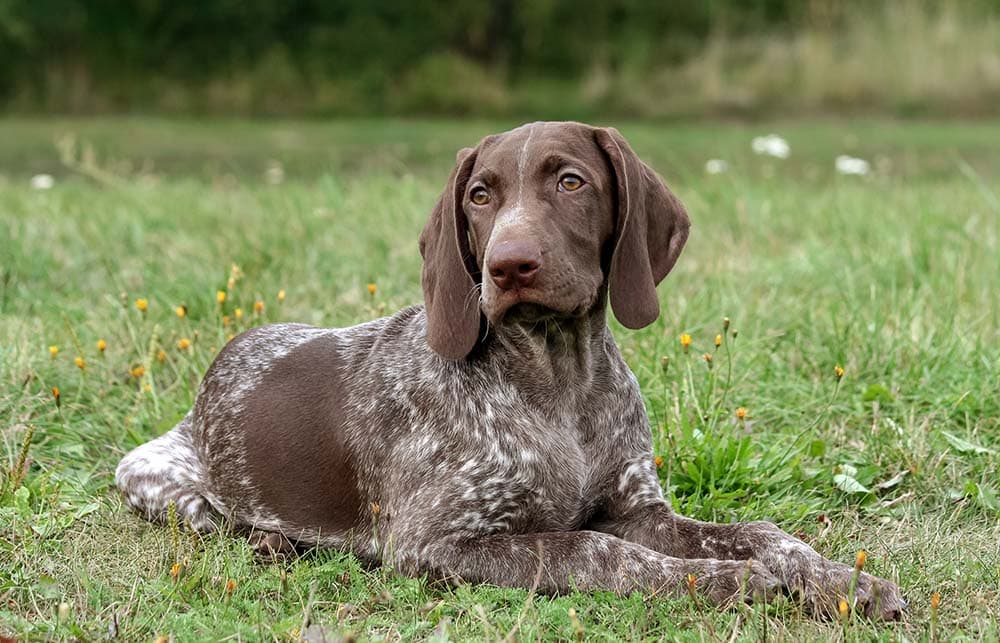
4. Gastric Torsion
| Type | Genetic |
| Treatment | Surgery |
| Prevention | Adjust diet |
This severe condition can affect deep-chested breeds, and unfortunately, the German Shorthaired Pointer is no exception. Gastric torsion occurs when the stomach twists on itself, cutting off the blood supply. This can happen after a big meal or exercise, and it’s a medical emergency. If you think your dog may be suffering from gastric torsion, get to the vet immediately.
The treatment involves surgery to untwist the stomach, and it’s often successful if caught early. However, dogs that suffer from it are at risk of developing it again, so it’s vital to watch for signs and get to the vet right away if you think your dog is affected.
You can help prevent gastric torsion by feeding your GSP smaller meals more often and avoiding exercise immediately after eating.
5. Entropion
| Type | Hereditary |
| Treatment | Surgery |
| Prevention | N/A |
This is a condition where the eyelids fold inwards, causing the eyelashes to rub against the eye and irritate it. It is a hereditary condition and can be corrected surgically. Ectropion is the opposite of entropion, where the eyelids fold outwards. This can also be caused by genetics or an injury. Surgery can also correct this problem.
Most German Shorthaired Pointers develop entropion when they’re puppies, so it’s not something you should have to worry about if your dog is older. However, if your dog develops entropion, it’s important to take them to the vet so they can get the corrective surgery they need.
Remember to have regular vet visits when owning a German Shorthaired to keep their health and well-being. If you’re concerned about your dog’s health we suggest you speak to a vet.
If you need to speak with a vet but can't get to one, head over to PangoVet. It's our online service where you can talk to a vet online and get the advice you need for your dog — all at an affordable price!

German Shorthaired Pointer Care Tips
If you are thinking of getting a German Shorthaired Pointer, congrats! You are about to care for one of the most remarkable canines. However, you need to be prepared before bringing them home. Here are some tips on how to take care of a GSP.
- Give Them Exercise Regularly: Your German Shorthaired Pointer needs at least an hour of exercise every day. An excellent way to provide this is to take them for a long walk or run. You can also take them to the park to play fetch or Frisbee.
- Feed Them a Healthy Diet: A healthy diet is vital for all dogs, but it’s especially important for German Shorthaired Pointers because they are prone to weight gain. It’s best to feed them high-quality dog food appropriate for their age and activity level.
- Grooming: German Shorthaired Pointers need to be groomed regularly. This includes brushing their teeth, trimming their nails, and brushing their coat.
- Training: GSPs are intelligent dogs that need to be trained. They need to know basic commands such as sit, stay, come, and down. Training will help them become well-behaved dogs. These are just a few tips on caring for a German Shorthaired Pointer. With lots of love and care, you will be well on your way to having a happy and healthy dog.


Conclusion
While the German Shorthaired Pointer is generally a healthy breed, there are a few health conditions to be aware of. If you are thinking of adding a GSP to your family, be sure to do your research and work with a reputable breeder to ensure you’re getting a healthy pup. Your GSP can enjoy a long and happy life with the proper care and nutrition.
Featured Image Credit: New Africa, Shutterstock

